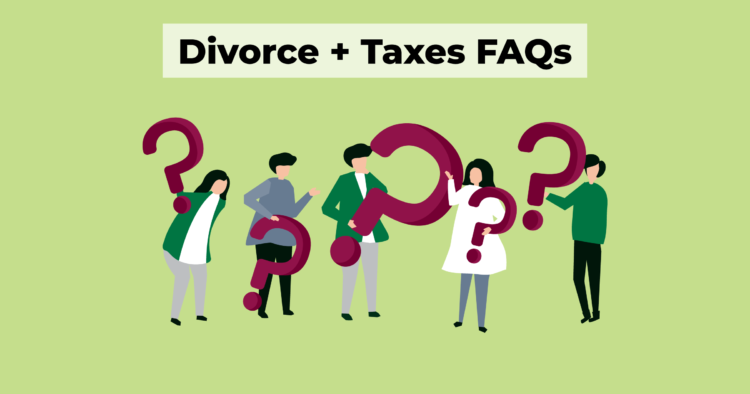
Divorce can be a complex and emotionally challenging process, and navigating its intersection with taxes adds another layer of complexity. Here, we address some frequently asked questions to help you better understand the tax implications of divorce in Canada in a straightforward manner.
1. When does the government consider you separated?
The Canada Revenue Agency (CRA) considers you separated when you live separate and apart from your spouse or common-law partner for 90 days or more due to a breakdown in the relationship. The effective day of your separation is the day you started living apart. For purposes such as the child benefit, the CRA may only recognize you as separated if you live in separate households.
2. When should you let the government know and how?
If you meet the CRA's criteria for being separated within a tax year, you should file your taxes as "separated" for that year. Once your divorce is finalized, you're expected to notify the CRA by the end of the month following the month your divorce was finalized. This notification can be done over the phone, online, or by mail. Subsequently, you'll file your taxes as "divorced."
3. Will I be taxed on child support?
No, if you're receiving child support, it is not taxed. Similarly, if you're paying child support, you cannot claim it as a deduction on your taxes.
4. Are legal fees tax deductible?
Legal fees paid to obtain or collect child support are deductible. However, fees for preparing a separation agreement or division of assets are not deductible.
5. Will I be taxed on asset transfers?
Most capital property, such as assets, can be transferred to the recipient spouse without tax consequences. However, for significant assets like a home or family cottage, it's crucial to take steps to avoid being liable for capital gains tax. Proper tax planning can help eliminate or reduce capital gains tax on the transfer of property, including shares or rental properties.
Understanding these key points can help you navigate the financial aspects of divorce with greater clarity. If you have specific questions or concerns about your situation, it's advisable to seek guidance from a qualified tax professional or financial advisor to ensure you make informed decisions tailored to your circumstances.
Disclaimer
All examples are for illustrative purposes only and are not intended to provide individual financial, investment, tax, legal or accounting advice. This material is for general information and is subject to change without notice. Every effort has been made to compile this material from a reliable source. However, we cannot guarantee that information will be accurate, complete and current at all times. Before acting on any of the above, please make sure to see a financial professional for advice based on your personal circumstances.
